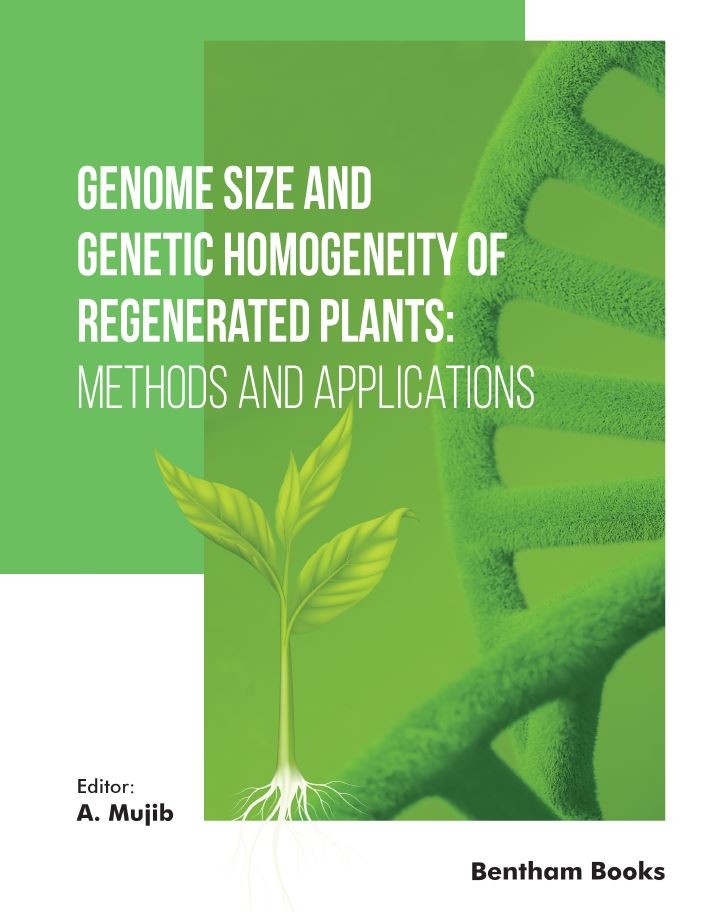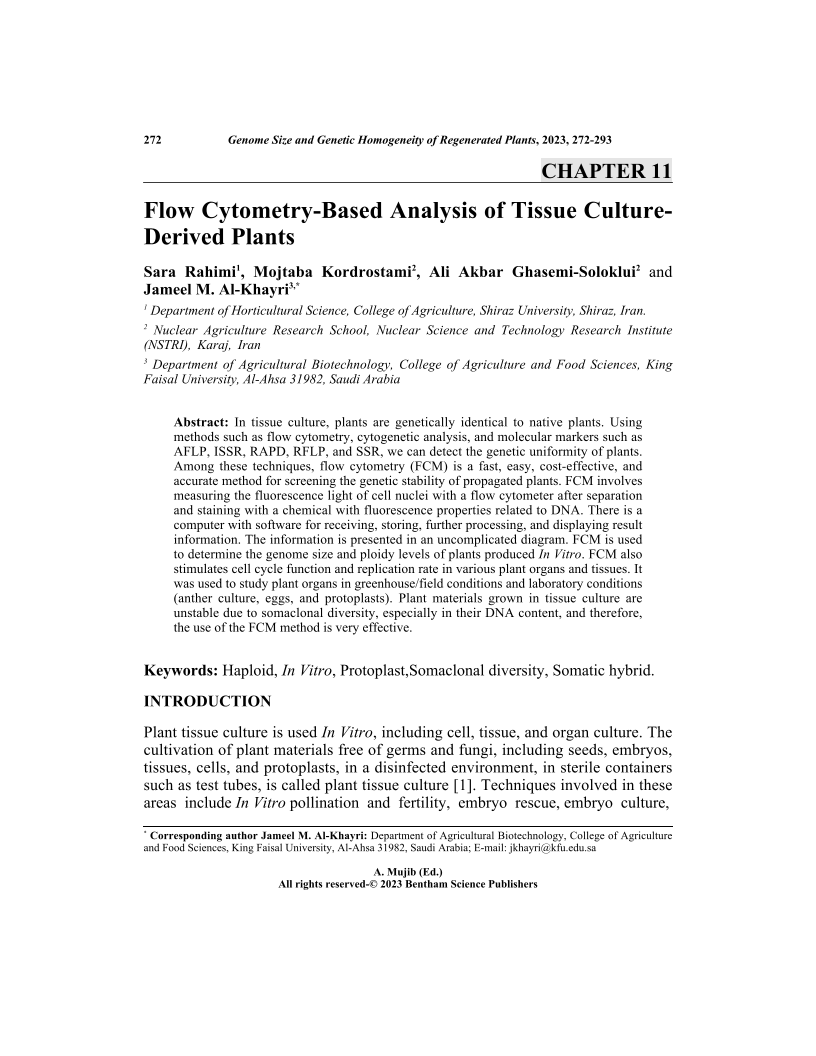Flow Cytometry-Based Analysis of Tissue Culture-Derived Plants

- Authors: Sara Rahimi1, Mojtaba Kordrostami2, Ali Akbar Ghasemi Soloklui3, Jameel M. Al-Khayri4
-
View Affiliations Hide Affiliations1 Department of Horticultural Science, College of Agriculture, Shiraz University, Shiraz, Iran 2 Nuclear Agriculture Research School, Nuclear Science and Technology Research Institute (NSTRI), Karaj, Iran 3 Nuclear Agriculture Research School, Nuclear Science and Technology Research Institute (NSTRI), Karaj, Iran 4 Department of Agricultural Biotechnology, College of Agriculture and Food Sciences, King Faisal University, Al-Ahsa 31982, Saudi Arabia
- Source: Genome Size and Genetic Homogeneity of Regenerated Plants: Methods and Applications , pp 272-293
- Publication Date: September 2023
- Language: English
Flow Cytometry-Based Analysis of Tissue Culture-Derived Plants, Page 1 of 1
< Previous page | Next page > /docserver/preview/fulltext/9789815165555/chap11-1.gif
In tissue culture, plants are genetically identical to native plants. Using methods such as flow cytometry, cytogenetic analysis, and molecular markers such as AFLP, ISSR, RAPD, RFLP, and SSR, we can detect the genetic uniformity of plants. Among these techniques, flow cytometry (FCM) is a fast, easy, cost-effective, and accurate method for screening the genetic stability of propagated plants. FCM involves measuring the fluorescence light of cell nuclei with a flow cytometer after separation and staining with a chemical with fluorescence properties related to DNA. There is a computer with software for receiving, storing, further processing, and displaying result information. The information is presented in an uncomplicated diagram. FCM is used to determine the genome size and ploidy levels of plants produced In Vitro. FCM also stimulates cell cycle function and replication rate in various plant organs and tissues. It was used to study plant organs in greenhouse/field conditions and laboratory conditions (anther culture, eggs, and protoplasts). Plant materials grown in tissue culture are unstable due to somaclonal diversity, especially in their DNA content, and therefore, the use of the FCM method is very effective.
-
From This Site
/content/books/9789815165555.chap11dcterms_subject,pub_keyword-contentType:Journal -contentType:Figure -contentType:Table -contentType:SupplementaryData105

